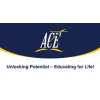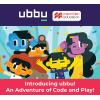How should parents choose a homeschooling curriculum?
Parents that consider home education often ask how they should choose a curriculum, or which curriculum is the best. These parents are also often anxious to make this choice as soon as possible, because they are concerned that the child will fall “behind”.
Before answering this question, it is important to understand that a curriculum is a body of knowledge that somebody else thinks that your child should learn. This “somebody else” is a group of people that does not know your child’s interests, talents or circumstances. The National Curriculum is very clear about this, as it states : “The National Curriculum Statement Grades R - 12 gives expression to what is regarded to be knowledge, skills and values worth learning.”
Some parents view their children as natural learners and do not like the idea that somebody else decides for their child what they should learn. They feel that children should explore the things that naturally interests them, and follow an informal approach to education. Click here for a short video explaining this approach.
Other parents feel safer with a more formal approach and want to make use of a curriculum. Parents that choose this approach should however note that there is no such thing as a “best” curriculum. Each parent and each child is unique. One curriculum is more suitable to one family than another. Parents must choose the curriculum that is the most suitable for their family. Parents might even choose different curriculums for different children, or different curriculums for different subjects.
There are many curriculums available on the market. Because there are so many choices, choosing a curriculum often seems like a daunting task to parents. For parents that are overwhelmed by these choices, there are however consultants that can help parents with understanding learning styles and how to select an optimal curriculum for their family.
Parents also feel under pressure to select a curriculum as soon as possible, because they fear that their children will fall behind. Such parents should ask themselves what they mean with “behind”. The idea of “behind” is based on a standard that was set by somebody that wrote a curriculum for an imaginary “average child”. Parents should however focus on doing the best for their child at that moment. The most important objective is that the child must learn, and not to be measured against other people’s arbitrary standards.
It is generally agreed that the best things that parents can do for their children is to read aloud. This is the single thing that Leendert van Oostrum tells parents in his speech with the title : “The winning recipe for home education.”
When considering a curriculum, parents should also keep in mind that people and circumstances change over time. If a curriculum works for a family this year, it does not mean that it will work next year. Parents should therefore avoid buying a complete curriculum. Just buy what you need for the current year, because you might want to change curriculums next year.
Events
Legal & Research
Centres
Homeschool ABC
Support
Curriculums
Cambridge & International ...
As of 1 January 2025, Macmillan Education is the sole agent ...
Learn, code and create with Ubbu
Introducing ubbu!An Adventure of Code and Play! Learn, Code ...
Has no content to show!

































Comments 1
As a very relaxed home schooler, tending to unschool mostly, I really enjoyed reading this post and appreciate the way in which it was written. Highlighting the choice and importance of a curriculum not as the end-all of education, but only as a tool, and with that only one of many choices of tools, was very refreshing indeed.
When I tell people that I homeschool my children, I am either met by the typical response of those that don't believe in homeschooling, or more recently those who homeschool too would immediately ask me what curriculum or program we are following. My answer has been simple so far - we follow life; taking it as it comes, dwelling sometimes for months on some specific theme (e.g. dinosaurs kept us busy most of last year!) while others ideas are dealt with in one or two questions and answers. Sure, one day we might follow a curriculum, or two, or three... but for now, we are having fun and learning just happens on the wayside.